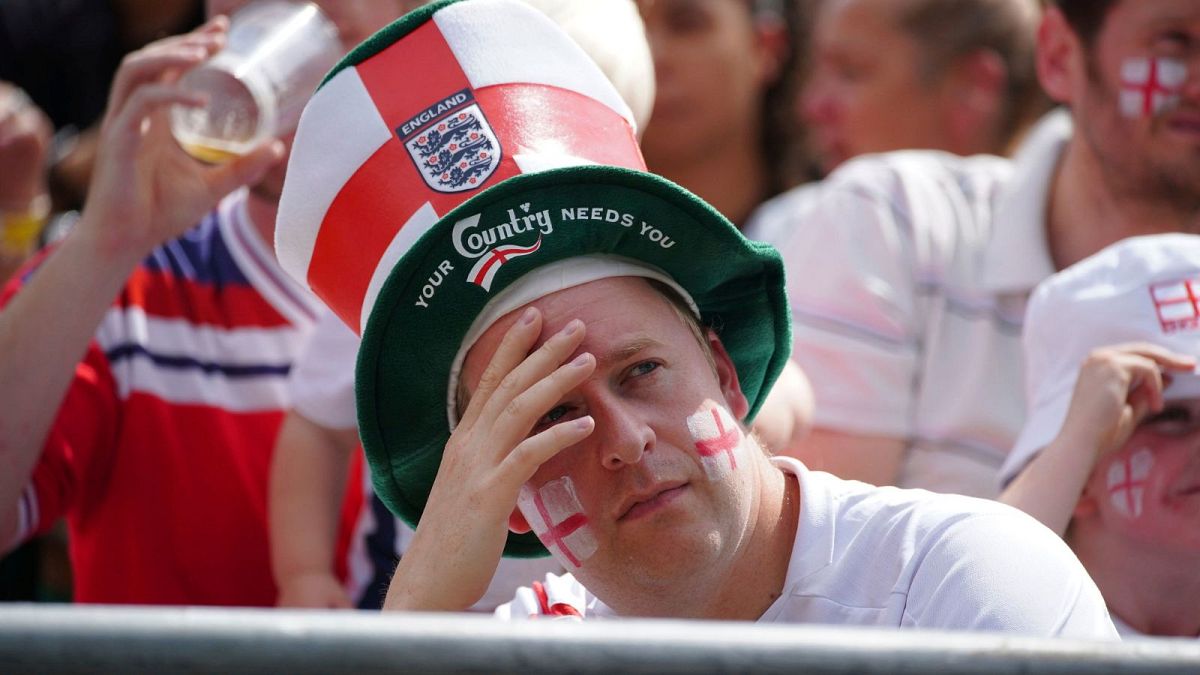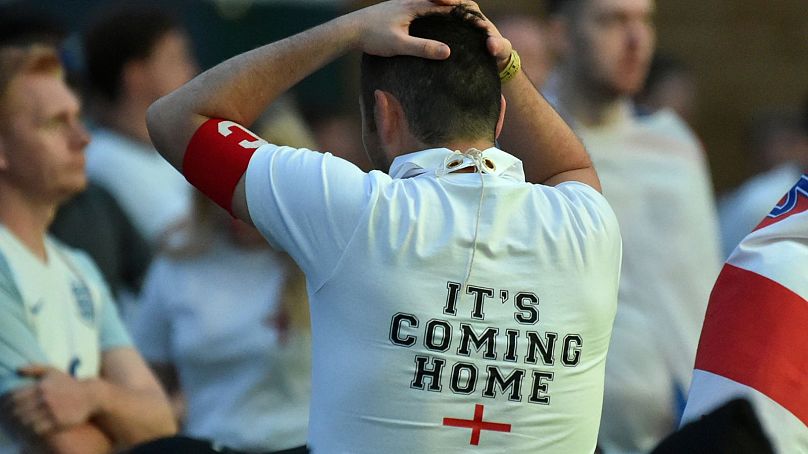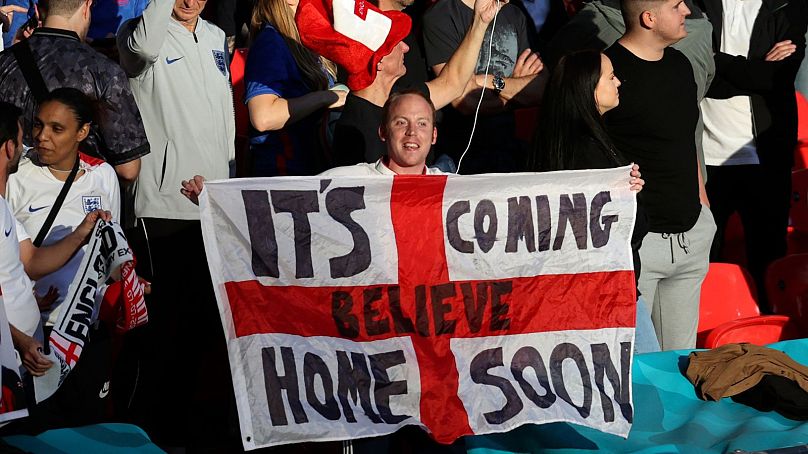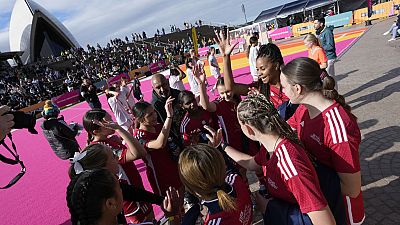Esta volviendo a casa...
Since 20 July, I’ve surprised myself by how invested I’ve been in FIFA’s Women’s World Cup.
The games were great, the atmosphere seemed genuinely good natured, and there was a refreshing lack of rolling around on the pitch or swaggering nonsense, replaced by a distinct sense of passion for the game. Compared to their male counterparts, the female teams delivered a faster, more enjoyable gameplay.
This matters when you take into consideration how overshadowed the women’s game has been compared to the male tournaments, in terms of visibility and funding - with the estimated average salary of a Women’s Super League player being around €55,000, a pithy fraction of what male players earn.
While I wasn’t invested in any particular team winning, there was one aspect that made yesterday’s England versus Spain final important to me.
Something was in the balance, something that needed to end: “Football’s coming home.”
You’ve all heard the chant from England fans, an unavoidable rallying cry that is deemed iconic across the pond and which can been seen on banners, flags, shirts and tattoos. But that chant plagues me to this day. Every time I hear it, it’s the equivalent of a horse violently and non-consensually fornicating with my ears.
As such, I was invested in who won.
Here was my flawed logic: If England won, we’d hear it ad nauseam for a few days, but since the trophy would finally be “coming home”, maybe the song would be put to bed. If Spain emerged triumphant, “It’s coming home” was here to stay.
Spain won. And therefore, the musical equivalent of herpes is here to stay.
The “It’s coming home” chant comes from a song called 'Three Lions', written by comedy duo David Baddiel and Frank Skinner along with the band The Lightning Seeds. It was released in the build up to the 1996 Euros, and while it wasn’t an official anthem at the time, it was very quickly adopted as one.
Since its release, it has been bothering the British music charts on several occasions, usually before major football tournaments.
The lyrics feature the line “It’s coming home, it’s coming / Football’s coming home”, as well as “Three lions on a shirt / Jules Rimet (the longest-serving president of FIFA who started the World Cup competition in 1929 and whose name was given to the trophy) still gleaming / No more years of hurt / No more need for dreaming.”
To explain, many English fans mistakenly believe that England is the birthplace of football.
It’s not.
The earliest form of football was ‘cuju’ which was played in China during the Han dynasty from 206 BC to 220 AD. Cuju literally translates as ‘kick ball’ and the aim of the game was to kick the ball in a net. More damning is that while England believe that football began in 1863 when the English Football Association was formed, the sport in its current form actually comes from Scotland. Indeed, the modern ‘passing and running’ version of the game heralds from Scottish clan members who played it in churchyards in the north of Scotland before bringing it to Glasgow in the 1860s, when Queen’s Park Football Club was founded.
Granted, it’s a song, and some artistic license is to be expected. My pedantry notwithstanding, some grievance is still merited considering the entitlement and misguided fervour England has with regards to the sport.
“It’s coming home”?
Oh, collectively get over it and make yourselves useful. Go boil an egg or something.
Yes, one man’s pain is another stronger man’s pleasure, and there are those who will argue that the song is a tongue-in-cheek chant, imbued with a self-deprecatory sense of humour. I just don’t buy it.
It’s not The Lightning Seeds’ fault, but for me, the chant has become inextricably intertwined with some less than edifying behaviour – to say the least.
I remember having to explain to some German friends during the 2020 Euro when I was living in Berlin what the song meant and why groups of pissed up Brits were barging into bars just to laddishly chant those three words before capping it off with a “You know!” cry and leaving.
Love the energy but stop treating other countries as your playgrounds.
I’m aware that I’m coming off as a snobbish killjoy and it is unfair to fully equate an annoying song with cringe worthy laddish behaviour and, by extension, dangerous hooliganism. A subculture seeing football as a vessel to channel their anger and considering the game as synonymous with a scrap and a piss up shouldn’t ruin it for others.
But it has, historically so.
The “English disease” led Leeds United to be banned from playing football in Europe in 1975 after their fans had a riot after a game versus Bayern Munich. Same goes for Man U in 1977. And then the Union of European Football Associations (UEFA) banned English football clubs from competing in Europe in 1985, following the death of 39 football fans, most of them Italian, at Brussels’ Heysel Stadium in a riot caused by English hooligans. That ban lasted until 1990.
“Yes but the song was released after that.”
Oh, it hasn’t stopped. To list all the incidents would make this article longer than a Leonard Cohen song. But just cast your minds back not too far to the Euro 2020 and the racist and violent attacks following England’s defeat against Italy in the final...
At least that gave Italian fans the opportunity to flip things around, and turn “It’s coming home” into “It’s coming Rome”.
Coming back to the present day, the ninth edition of the women's tournament highlighted the growth and popularity of the women's game – and that’s something to applaud. It was a joy to watch and featured an absence of destructive behaviour.
The Lionesses were great and they deserved to be in that final. They may have even deserved to win.
However, when your national chant has unfortunately become a) a nuisance; b) mocked by others; c) synonymous with terrible behaviour; and d) a shot albatross considering England have only ever won one major international trophy, the World Cup in 1966, and still no homecoming since the song’s release 27 years ago, it’s time for a new chant. A better chant. And maybe one which doesn’t capture the exhausting experience of weary pessimism.
If England supporters won’t change le disque and let go of their beloved anthem, let’s at least strike a deal to make it more palatable.
Every time it is sung, British home secretary Suella Braverman has to donate a grand to a charity as penance for her racist rhetoric and despicable immigration policies.
If Braverman won’t play ball, then maybe the British Museum can repatriate one artefact to the country it was stolen from during the country’s colonialist heyday.
If that’s too much to ask, then at least England fans for upcoming international football tournaments could take this year’s Women’s World Cup as an example to follow in terms of behaviour abroad.
And maybe stop maintaining rights on a game they’ve so brazenly claimed their own.





